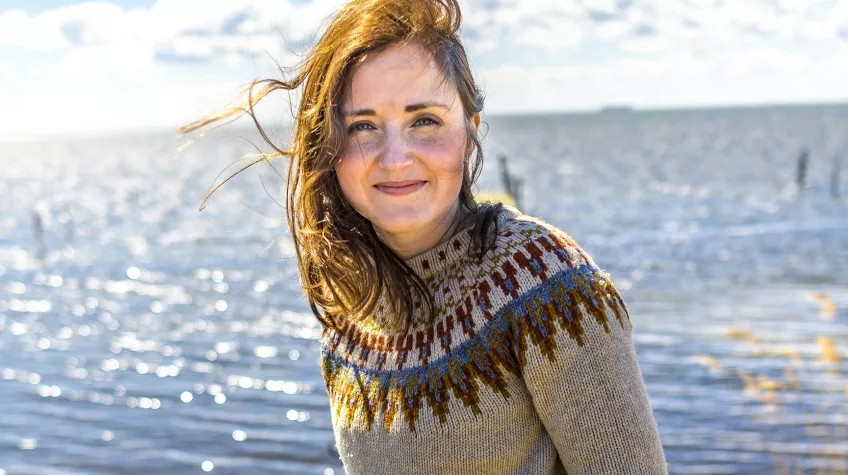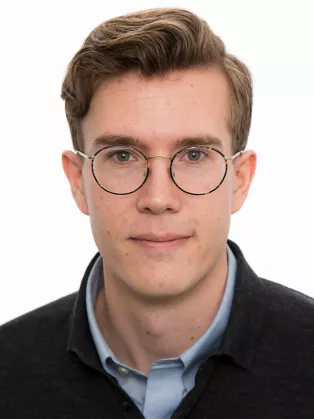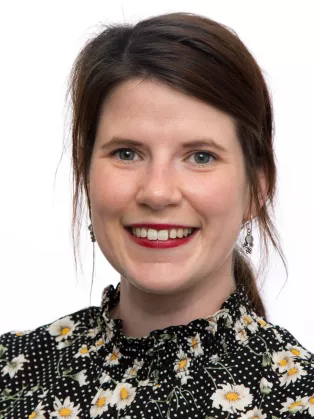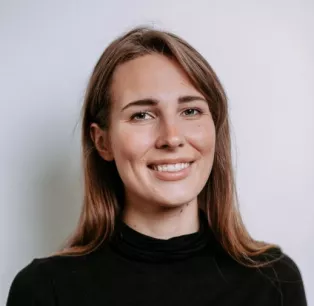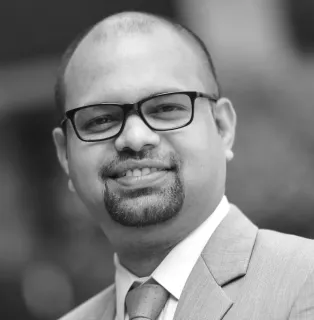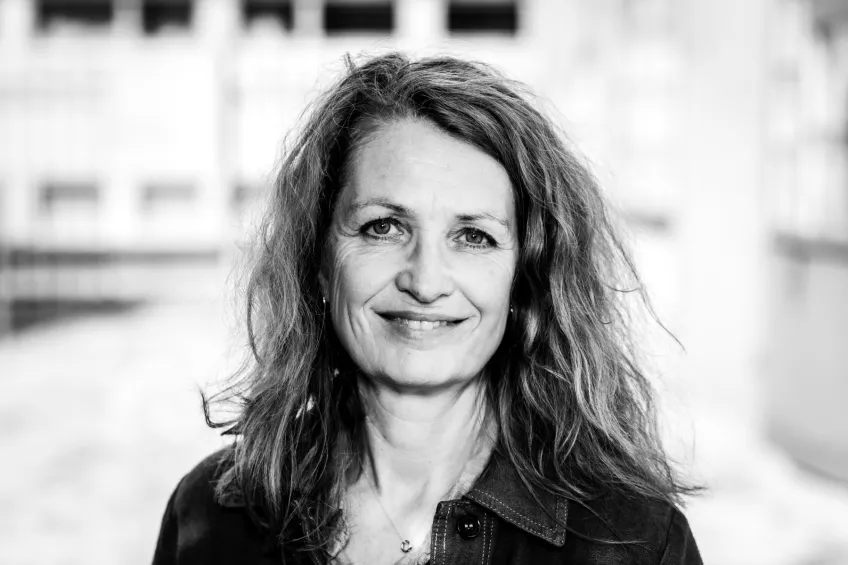Being a doctoral student
There are as many stories about being a doctoral student as there are doctoral students. Here, some of them share their stories. We also get to hear the supervisor's perspective.
Sofia, what led you to choose to pursue a doctoral education?
– When I had just graduated and was faced with choosing a career path, I was a single parent with two young children in preschool. The most significant factor that influenced me to apply for a doctoral position was the flexibility that this choice offered. This decision has been so beneficial for my family over the years. Regardless of whether I succeed or not, which can sometimes be doubted on this rollercoaster ride, the tranquillity that the doctoral period has given me outweighs it all.
What is a typical day like for a doctoral student?
– What I've learned about myself is that it takes me time to get started, and I can't write for a whole day. I can't maintain focus and concentration for that long. But once I get going around ten o'clock, I can sit for four hours without a break. After that, I switch my focus and spend the afternoons responding to emails, preparing for teaching, or reading texts for the research school. Personally, I prioritise tasks and stick to my plan.
What advice would you give to someone considering applying?
– Academia suits individuals who, like me, value high flexibility and enjoy analysing and solving problems. To succeed in doctoral studies, I believe it's important to have the ability to structure one's work and prioritise. Four or five years may sound like a long time, but it goes by quickly, and for many, it's a challenge to finish on time. It can also be difficult to know where to set the bar. For me, the ultimate goal is clear: a completed thesis. Everything else is a bonus.
Alexander, what led you to choose to pursue a doctoral education?
– When I was studying, I never even thought about applying for doctoral studies. I was fully set on applying to a law firm. However, when I wrote my thesis, I realized that I really enjoyed the process of writing. Shortly after completing my thesis, my supervisor informed me that the Supreme Court had granted leave to appeal on the very issue I had written my thesis about and encouraged me to write an article on the subject. The article was published, and it got me thinking about the possibility of applying for doctoral studies. When it turned out that the Supreme Court referenced my article, it was an incredible boost for me. So what led me to apply was probably the combination of enjoying thesis writing, getting recognition for my article, and the opportunity that arose to apply for a doctoral position in dispute resolution.
What has been the most exciting or challenging aspect of your work as a doctoral student so far?
– The most enjoyable part has been the practical relevance of my field and having my work read and discussed among practitioners, as well as being referenced in several district and appellate court judgments. Writing about a practically relevant topic has allowed me to quickly assume a kind of specialist role, which might have taken longer outside the academic world. Teaching is also enjoyable! It provides an opportunity to test the ideas I've been working on. It's also a big and fun challenge to convey different theoretical concepts to curious and well-informed students.
What advice would you give to someone considering applying?
– If, as a student, you've rarely had the chance to delve deeply into the issues covered in the program and have also enjoyed writing longer papers, I think it would be difficult to find a more enjoyable position than a doctoral position. The great strength of a doctoral position is that you immediately engage with the difficult "cracking" questions. Even though at the beginning of the law program, you may feel like you're learning "all the law there is," you quickly realize that you're only scratching the surface of the issues. A doctoral position allows you to thoroughly investigate and fully understand these questions! I believe it's uncommon in the legal world.
Manni, what led you to choose to pursue a doctoral education?
– It was something that was always in the back of my mind. My mom did her PhD when I grew up, and that probably shaped me. I also enjoyed the research component of my post- graduate degree. I enjoyed taking something that I was interested in and look at it from different angles. I knew I was interested in health law and did my post graduate dissertation about assisted dying. I was speaking to people in Uppsala and they actually told me to go to Lund, where I also went for exchange studies a couple of years back. There is such a big health law community here in Lund in comparison to the rest of the Nordic countries.
What is the most exciting or challenging thing you have worked on as a as a PhD student so far?
– I enjoy going outside of my own field and communicating with and learning from health care workers. I conduct interviews with healthcare professionals as part of my doctoral project on end-of-life decision making, and it requires stepping out of my comfort zone.
What advice would you give to someone considering applying?
– You have to be ready for being resilient, be challenged, and push yourself. As I mentioned, going outside my comfort zone was actually something I was looking forward to when applying. I wanted to learn more skills and give myself different dimensions, like teaching.
Marika, what made you decide to apply for a doctoral program?
– I really enjoyed writing my master's thesis. The idea of pursuing a doctoral program originated from that experience. Within academia, I was particularly fascinated by the freedom associated with it – the opportunity to deeply delve into an interesting subject and determine the work process, how things are done, and in what order. I was also interested in teaching even before I applied.
What has been the most exciting aspect of being a doctoral student so far?
– Undoubtedly, it's been my own project, with its ups and downs. There are phases when motivation is at its peak, and there are moments when despair sets in while working on my own writing. Being a doctoral student has also enabled me to engage in many interesting activities. I've been able to conduct research visits to Copenhagen University, teach on highly fascinating topics, and have incredibly interesting discussions with colleagues.
What would you say to someone considering applying?
I highly recommend that you apply if you have an interest and motivation to delve into a specific subject! A doctoral program teaches critical thinking and the ability to organize ideas and produce academic texts. Of course, it also requires some perseverance and occasional nerves of steel...
Mahesh, what made you apply for a doctoral education?
– I was teaching at an university in India and was drawn to Lund University's good reputation in human rights law, which aligns with my interest in the intersection of environmental law, human dimensions, and equitable distribution. The prospect of researching sustainable development particularly intrigued me. Specifically, I am examining how courts in Southeast Asia are shaping the principle of sustainable development under the influence of political factors that drive the judgements.
Can you describe a typical day as a PhD student?
– A typical day as a PhD student revolves around extensive reading, critical thinking, and engaging in discussions with colleagues, supervisors, and fellow PhD students. I am fortunate to be part of a vibrant community of over 20 PhD students, where exchanging ideas and perspectives is commonplace. While my initial project has evolved since my arrival, I have found great excitement in rethinking and reframing my research. I spend a significant amount of time contemplating different approaches and perspectives, which has led to valuable insights and a fresh lens through which to view my work.
What advice would you give to someone considering applying for a doctoral education?
– I highly encourage you to apply! From day one, you will experience a supportive and stress-free environment. Unlike many other programs, you are granted four years to pursue your research interests, providing ample time for exploration. I appreciate the collaborative nature of the work environment where people are genuinely invested in helping you out.
Ulrika, how do you view the supervisor's role?
– The supervisor plays a crucial role in the doctoral student's education. For me, it's essential to be aware of the power dynamics as a supervisor. I approach it with humility and carry that awareness with me. Being a supervisor is one of my most important, fascinating, and rewarding responsibilities. Personally, I consider it a great privilege.
How do you support your doctoral students?
– Listening and truly understanding are my primary strategies. It's important to be a good listener in many ways and not be too eager to dictate. I strive to highlight the doctoral student own the project and encourage them to find their own voice. It's a balance between listening and providing guidance. Recognizing the student's potential in all aspects is crucial, something I experienced with my own supervisor.
What would you like to say to those considering applying?
– Writing is incredibly central in legal studies, and it's important to have the opportunity to develop those skills during doctoral studies. You never truly finish growing as a researcher or writer, but you can continuously improve your abilities. It's also important to be able to plan both in the short and long term. However, even with planning, unexpected things can always happen. If you knew the outcome in advance, it wouldn't be a research task. As a doctoral student, you don't know from the beginning how things will turn out. It's exciting and challenging at the same time.
Contact
Richard Croneberg
Director of studies for doctoral education
richard [dot] croneberg [at] jur [dot] lu [dot] se (richard[dot]croneberg[at]jur[dot]lu[dot]se)
